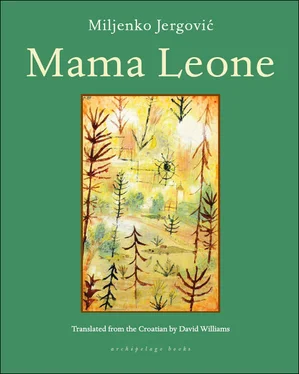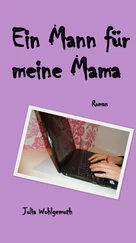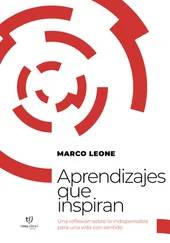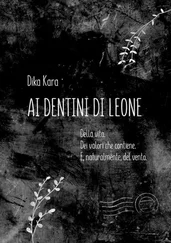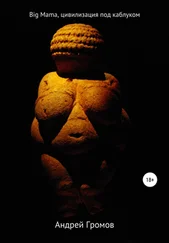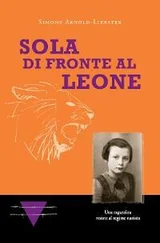Uff, I forgot to tell you he’s stone-deaf, it’s been more than a year now , said her mother, busy fixing a lunch that would today nourish Marina’s skinny limbs, and together with the next five to come would be a message to the world where her daughter was returning. Astor was again in his armchair, his head resting on his paws, looking at Marina with that senile sadness, one full of miscomprehension of those who would so constantly and so animatedly explain something. She could still feel traces of rage; in fact it seemed that this time her anger was moving slower than its source. She needed to change something urgently but didn’t know what. It would be best to go now, to get on a plane today and disappear. But of course she won’t. It’s only right to stay another five days, and then take off among the angels and onward to a world where she wasn’t beholden to anything, anything good or anything evil, where not a single one of her deaths existed.
Marina lived in Vancouver. She had gotten her Canadian passport a month ago and could now travel wherever she wanted. The process of becoming a Canadian citizen had lasted three years. As the Canadian authorities see it, that’s how long you need to forget everything you might call home and accept that home no longer exists or at least that home isn’t where you were born.
She worked in a shoe shop and once a month had an appointment with the caseworker responsible for her resettlement and integration, a Vietnamese woman who repeated over and over how she knew life under communism was tough, offering only a handful of rice a day. Marina would nod her head, smile in confirmation, yes, a handful of rice and nothing more besides . The Vietnamese woman was quickly convinced that Marina’s integration and socialization would be perfect, and that soon she wouldn’t even remember the many a horror of a system that forced everyone to wear the same uniforms.
She lived alone, she tried falling in love three times, every time she said I love you, I love you, I love you , it was like she was saying oh, that’s so great at a dozy rest-home tea party. Not obliging her to anything, that’s about what it sounded like. Then she would take off with barely an explanation, leaving behind confused young men lifting pairs of foggy glasses with their index fingers as if it were a rainy day.
In the free world you can live completely alone and never feel like something’s missing. And so Marina ended up alone in Vancouver, surrounded by a mountain of shoes, like a Cinderella who after midnight had realized that not even a prince was much of a win in life, at least not in this country.
A few nights before the trip to Belgrade she’d had a dream in which someone was missing; one of the three, Astor, her mother, or her father, was absent, but in her dream she couldn’t work out who. One moment Astor and her father were there, the next her mother and Astor, the next her father and mother, the next Astor, her father and mother, but as a pair, not as a threesome. She desperately tried to account for all household members, but there was always someone missing. She phoned her sister in Los Angeles and tried to tell her about the dream; she didn’t understand it, she said my kid has a cold and I gotta go to work . Marina put the receiver down guiltily and looked at the clock, in Zagreb it’s four in the morning, she wanted to call Him, but how do you call someone in Zagreb at that hour to tell them about a dream from Vancouver.
Since arriving she’d heard her parents’ breathing, seen the age spots on her father’s hands and his choking at lunch. Her mother’s face had an unhealthy complexion, or that’s just how it seemed to her; do you have any prescriptions , she asked, sweetheart, what’s with that, we’re not sick , her father replied, surprised. Astor was still lying there, his head again resting on his paws, looking sadly ahead, his eyes only flickering when someone made a sudden movement.
That morning they had breakfast together. Her father brought three soft-boiled eggs in porcelain eggcups. It was snowing outside. They sat at the table, covered with a cheery and colorful tablecloth decorated with motifs of harvest scenes. They lifted their spoons almost simultaneously, tapping the tips of their eggs. Three taps was enough to break the shell. Nine taps in a gentle morning snow that would blanket all the dust. They remained there in silence like people who from here on in would always, every morning, sit in silence together around the same table. All three were relieved to have quit their thinking, each for his own reason. Saying their goodbyes at the airport in Surčin, they will remember this breakfast. Maybe they should have talked after all. When the plane finally takes off, her father will hug her mother, wiping her tears away with his left arm, waving to Marina, who won’t see a thing, with his right. He’ll be waving to the plane that is Marina. In that instant Marina will think how Astor was missing from the breakfast scene, a sign and an explanation of the dream. She knew she’d never see him again.
That’s how it will be when she goes. Now she’s still here, looking at the veins popping out of her father’s neck as he tries to slurp up the contents of the egg. Only living creatures, precious creatures, could endure such torture while doing the ostensibly simplest things. He could smash the egg, be done with it, and eat in peace, a spoonful at a time, all the white and yellow. Later he would have forgotten all about it, but this way he’ll definitely remember, he definitely won’t forget slurping at the egg and the egg not wanting to come out. It could have all been so much simpler, done with so much less humor for those looking on. Marina wanted to laugh but didn’t want to break the silence of the morning. Both sky and clouds are gone now. Outside everything is snow-white like under the wing of a drunken angel.
Nana Erika is sleeping poorly. It’s almost Christmas, their first since coming to Zagreb, but she can’t go out to the market to buy butter for the cake, codfish, baking chocolate, a three-month-old suckling, dates, almonds, walnuts, tinsel, rose oil, that transparent plastic wrapping, and all the things she used to buy that meant winter was upon us, the snow quieting every voice, and a celebration was in order because we were still alive, we and all our loved ones, in the house in Bistrik, in Sarajevo, and all over the world wherever Potkubovšeks and their children might be. Nana can’t remember exactly when that time ended; the festivities and preparations, the fingers freezing under the weight of shopping bags, but it seemed to her long past, maybe a few lifetimes ago, because in this life, one she still remembers well, the war continued apace, and there was no market, no Christmas, no festivities, nor would there have been any today had they not moved to Zagreb, to this apartment from which Nana has never ventured out because her legs can no longer carry her, even the journey to the bathroom she can’t make alone.
It’s a big world out there and there are many Christians in it, too many for one to ever meet them all. Nana Erika had always known this, but how could a regular three-room apartment be so big that she doesn’t even know all the Christians within its walls? A strange girl brings her coffee and asks do you need anything, Nana? Then a kid, probably a high-school junior, pinches her cheek, puts his cold nose to her forehead, and says I’m frozen, Nana, it’s a thousand degrees below zero outside . Nana Erika just smiles, giving them the ready answer she gives everyone: yes, yes, my child, it’s all misery and woe . And then the girl, playing angry, says I didn’t ask you for the state of the nation, but if you needed anything .
Читать дальше
